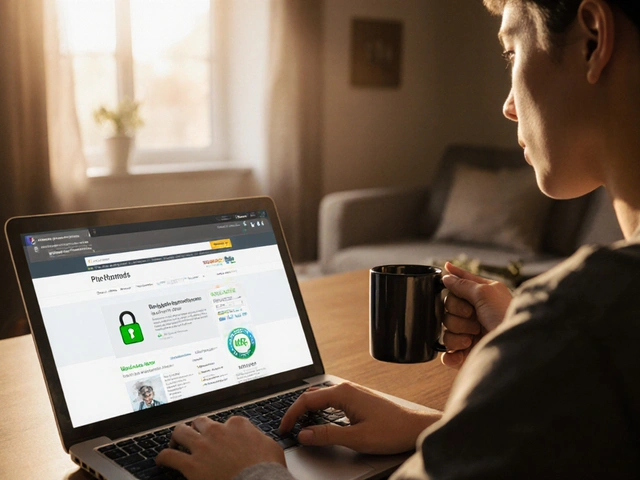High Blood Pressure Medication: What You Need to Know
If you’ve been told you have hypertension, the first thing most doctors suggest is a blood pressure pill. But with so many options, it’s easy to feel overwhelmed. This guide breaks down the main types of high blood pressure medication, explains how they lower your numbers, and gives practical tips for taking them safely.
Common Classes of Blood Pressure Drugs
ACE inhibitors (like lisinopril or enalapril) widen blood vessels by stopping a hormone that tightens them. They’re often the first choice because they work well and are easy to tolerate.
ARBs (such as losartan or valsartan) do a similar job to ACE inhibitors but with fewer cough side effects. If an ACE inhibitor gives you a persistent tickle in your throat, ask about switching to an ARB.
Calcium channel blockers (for example amlodipine or diltiazem) relax the muscle cells in artery walls. They’re great for people whose blood pressure spikes at night.
Beta‑blockers (like metoprolol or atenolol) slow your heart rate and reduce the force of each beat. They’re useful if you also have a fast heartbeat or past heart attacks.
Diuretics (such as hydrochlorothiazide) help kidneys get rid of extra salt and water, lowering blood volume. Many doctors start with a low‑dose diuretic plus another class for better control.
Choosing the Right Medication for You
The best drug depends on your age, other health issues, and how your body reacts. For instance, someone with kidney disease might avoid ACE inhibitors, while a person with asthma may skip beta‑blockers. Always tell your doctor about any allergies, current meds, or supplements you’re taking.
Start low and go slow. Your doctor will usually begin with the lowest effective dose, then adjust based on follow‑up readings. Keep a log of your blood pressure at home; seeing trends helps both of you decide if a change is needed.
Watch for side effects. Common complaints include dizziness, fatigue, or mild swelling in ankles. If symptoms get worse—like severe shortness of breath or sudden weight gain—call your doctor right away.
Don’t skip doses. Missing pills can cause spikes that undo weeks of progress. Set a daily reminder on your phone or keep the medication where you brush your teeth to make it part of your routine.
If you’re juggling multiple drugs, ask about possible interactions. Some over‑the‑counter pain relievers (like ibuprofen) can blunt the effect of certain BP meds, while grapefruit juice may raise levels of calcium channel blockers.
Lifestyle still matters. Even the strongest medication works best when paired with a low‑salt diet, regular walks, and stress management. Think of the pill as a partner—not a magic fix.
Finally, schedule regular check‑ups. Blood pressure can change over time, and your treatment plan should evolve with you. Keep an open line with your healthcare team, ask questions, and stay informed about new options that may suit you better.
Top Alternative Medications to Inderal for 2025: An In-Depth Guide
This article explores six notable alternatives to Inderal in 2025 for managing high blood pressure, heart issues, and migraines. It reviews each alternative's benefits and drawbacks while keeping the reader informed about key considerations. These alternatives include different classes of medications such as beta-blockers, calcium channel blockers, and CGRP antagonists. Helpful tips and considerations guide readers in making informed choices for their health.
About
Medications
Latest Posts


Compare Isofair (Isotretinoin) with Alternatives for Acne Treatment
By Orion Kingsworth Nov 1, 2025

Genetic Factors in Statin Tolerance: How Pharmacogenomics Testing Can Help You Stay on Your Medication
By Orion Kingsworth Oct 27, 2025

Introducing Peony: The Dietary Supplement That's Taking the Health World by Storm
By Orion Kingsworth Jul 6, 2023

